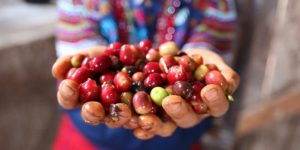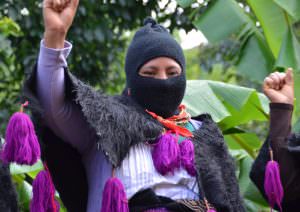The ‘Third Wave’ of Coffee Could Save the Earth
High-quality coffee, bought "based on its origins, its process, its methods," may be a bit "hipster" and more expensive than the average Starbucks goop, but according to writer Chérmelle Edwards in The Guardian, it may be far better for the environment. Giving a bit of thought to where your morning joe comes from and how it's produced may be more important than you realize. Shutterstock
Giving a bit of thought to where your morning joe comes from and how it's produced may be more important than you realize. Shutterstock
High-quality coffee, bought “based on its origins, its process, its methods,” may be a bit “hipster” and more expensive than the average Starbucks goop, but according to writer Chérmelle Edwards in The Guardian, it may be far better for the environment.
The Guardian:
For coffee nerds like me, who fear that venture capitalists and coffee missionaries will succeed in converting cup-of-Joe drinkers into religious followers of single-origin coffees and ruin what’s “special” about specialty coffee, it’s time to stop worrying. As first-world consumers, coffee producers and farmers begin to understand the value of the taste of a really great cup of coffee, and the intentional pursuit of that will change what commodity coffee is — its definition, its value and its dominance. We’ll still have specialty, but we’ll gain specialty-as-commodity, too.
I’ve heard all the complaints about how the Starbucksification of coffee didn’t keep artisanal coffee special — but that’s because it wasn’t about artisanal coffee at all. The so-called second wave of coffee expansion was about getting consumers to come to a space to enjoy the ritual of coffee. … In the third wave, however, we buy coffee based on its origins, its process, its methods — and its evangelists are out to get specific about what separates it from being a standard commodity.
Traditionally, mass production has meant less of all of this. As “the big four” in specialty coffee companies — Stumptown, Blue Bottle, Intelligentsia, Counter Culture — attract millions in investments and investor interest (Counter Culture, for instance, remains independent), expanding the number of people who care about what is special, it means we’ll have to grapple with how to expand quality and sustainability while minimizing the environmental impacts of mass, specialty coffee productions.
But mass can mean more in a good way.
—Posted by Natasha Hakimi Zapata
Your support matters…Independent journalism is under threat and overshadowed by heavily funded mainstream media.
You can help level the playing field. Become a member.
Your tax-deductible contribution keeps us digging beneath the headlines to give you thought-provoking, investigative reporting and analysis that unearths what's really happening- without compromise.
Give today to support our courageous, independent journalists.






You need to be a supporter to comment.
There are currently no responses to this article.
Be the first to respond.